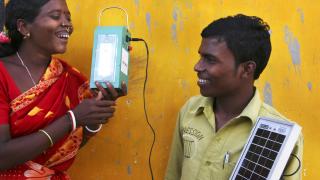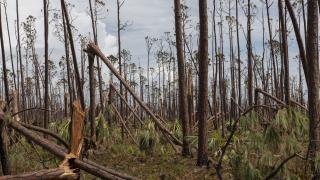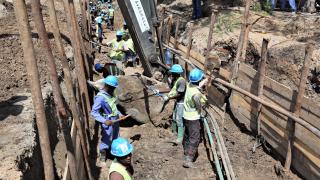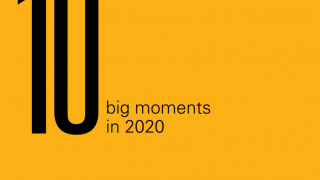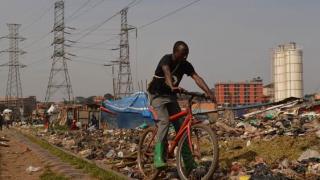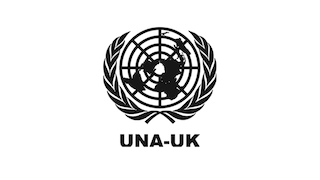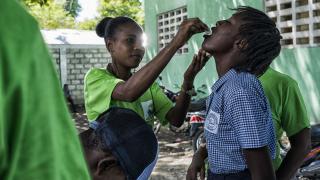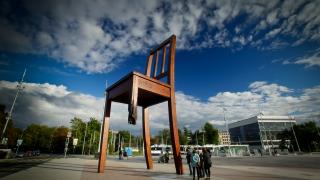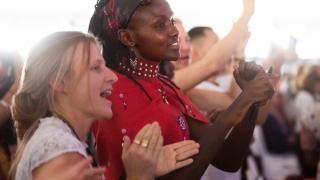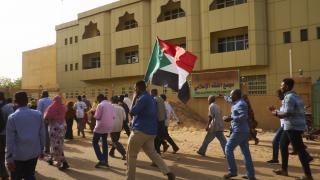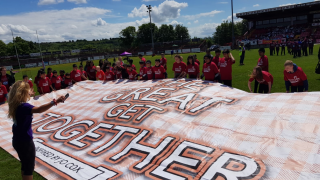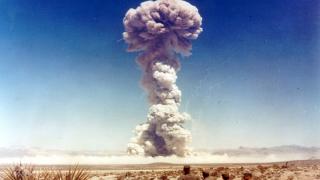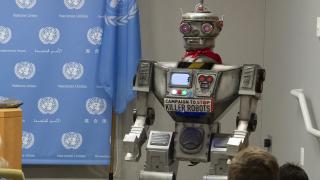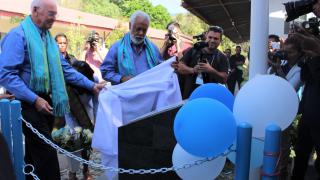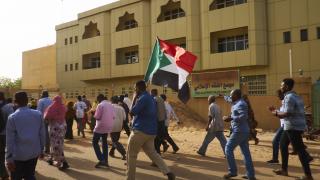
Images and video from Sudan’s capital, Khartoum, on 11 April 2019 showed a jubilant crowd, united in celebrating the ousting of President Omar Al-Bashir. He had ruled Sudan for almost 3 decades, and many in the young crowd had known no other leader. News editors around the world marshalled familiar scripts borrowed from the Arab Spring about a frustrated youth and deposed dictators.
This momentous development was positioned as a tipping point for a country otherwise known for the first genocide of the 21st century in Darfur, in response to which the UN deployed one of its most expensive peacekeeping forces, and issued a referral to the International Criminal Court resulting in the first ever indictment for a sitting head of state.
But the attention paid to April 11 ignored both prior points of no return during the months-long protests leading to Bashir’s removal, and the remaining substantial challenges that meant Sudan’s transition to good governance was still anything but assured. A preoccupation with the fate of regional strongmen can often blind Western governments to the more important factors of collective resistance and political economy.
Veteran Sudan watchers can tell you that a more relevant tipping point came earlier, on 19 December 2018, when protests broke out in Atbara - the historical heart of Sudan’s trade union movement and where a more affluent riverine elite live. However, this was all but ignored by the international community.
At the time the country was suffering from rapid currency devaluation and a chronic lack of foreign currency – Atbara indicated that Sudan’s economic woes had hit the middle classes. It also suggested that resistance was now removed from traditional political forces. In fact, in the first few days of the protest the government’s feared and torture-prone National Intelligence and Security Services simply rounded up the usual opposition figures, unaware that demonstrators had instead aligned themselves with the apolitical Sudanese Professionals Association (SPA), which worked by decentralising power to neighbourhood resistance committees.
These events mean the protests were distinctly different from the outset. Nevertheless, as the international community had spent years pursuing collaboration with the Bashir government, armed with talk of carrots not sticks, it remained invested in a strategy of ‘better the devil you know’. This left them ill-prepared both to predict the uprising in the preceding years, and to recognise the significance of the protests until their aims of tasgut bass (“just fall, that is all”) had been realised.
It also left governments ill-placed to predict and respond to the violence involved in the second tipping point of Sudan’s revolution. Bashir’s fall on April 11 was viewed with suspicion on the ground. Protests continued for months at a massive sit-in in front of army headquarters in the capital. During this time power-sharing agreements were hashed out between the Forces for Freedom and Change, into which the SPA had been merged, and military elements.
On June 3 this site was stormed by a paramilitary group, at least 120 individuals were killed, 70 raped, and bodies were dumped in the River Nile in scenes of horror last seen by the world in Darfur, and in the Nuba Mountains to the south of the country. It was only the strong public condemnation of this massacre that weakened the hand of the military and its Gulf backers, and forced compromise leading to the formation of a joint civilian-military Sovereign Council, and the institution of a three-year transitional period before elections.
Now new tipping points remain. What will signal the moment that the so-called ‘deep state’ patronage networks have been meaningfully dismantled, and a genuinely democratic culture established? And when will we know that marginalised communities from conflict areas adequately feel their concerns about equal citizenship, inclusive governance, transitional or restorative justice, accountability, and gender equality have been tackled?
Precisely when remains unclear, but we will only know these tipping points have been reached by prioritising engagement with Sudan’s people, including those forced into displacement, and always remaining wary of those who claim power on their behalf.
Photo: Protestors march in Sudan, April 2019 © Sari Omer, Flickr.


